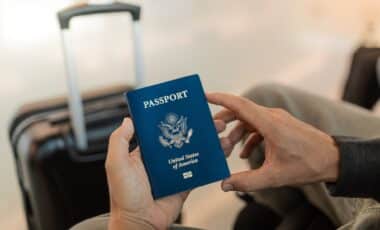A wide-ranging audit by the Department of Government Efficiency (DOGE) has led to the cancellation of more than half a million government-issued credit cards. The move forms part of a broader crackdown on federal expenditure and follows a temporary freeze ordered by President Donald Trump earlier this year.
The initiative, announced on 18 February, is aimed at reducing administrative complexity and curbing misuse of public funds. According to DOGE, the federal government processed approximately 90 million credit card transactions during the 2024 fiscal year across some 4.6 million active cards.
Deactivation Targets “Unused or Unneeded” Cards Across 32 Agencies
Following a 13-week audit, DOGE confirmed the deactivation of around 523,000 cards across 32 federal agencies.
The suspended cards span institutions such as NASA, the General Services Administration, and the departments of the Treasury, Education, Interior, Commerce, Agriculture and State. According to a post published on X (formerly Twitter), the program will now be expanded to additional agencies.
The decision follows an executive order issued by President Trump mandating a 30-day freeze on most agency-issued credit cards, with exemptions made for operations related to disaster response, critical services and other essential government activities. Agency heads were authorised to grant individual or categorical exemptions where operationally necessary.
According to DOGE, the primary objective was to identify redundant or dormant accounts and eliminate unnecessary spending. In March, DOGE reported that 200,000 cards had been suspended; that figure has now more than doubled. The department has not yet confirmed how many more deactivations are anticipated as the audit continues.
Operational Impact Draws Criticism From Agency Officials
While DOGE’s campaign has been welcomed by supporters as a much-needed effort to eliminate waste and inefficiency, critics argue that the scope and speed of the card deactivations have created logistical difficulties. In particular, some federal agencies have reportedly encountered challenges securing essential goods and services.
According to Newsweek, the Transportation Security Administration (TSA) temporarily struggled to procure supplies for its canine bomb-detection units during the initial freeze period.
A spokesperson for the agency confirmed that “credit card purchases have been restricted for 30 days”, though added that “canine operations have not been adversely affected by this effort”.
Michael Ryan, founder of MichaelRyanMoney.com, told Newsweek that federal credit cards are more than just payment tools. “We’re looking at lifelines for federal agencies—cards that keep the lights on, quite literally,” he said.
Elon Musk, who led DOGE as a senior adviser before stepping down in May, stated on X that the department’s mission would “only strengthen over time as it becomes a way of life throughout the government.”









